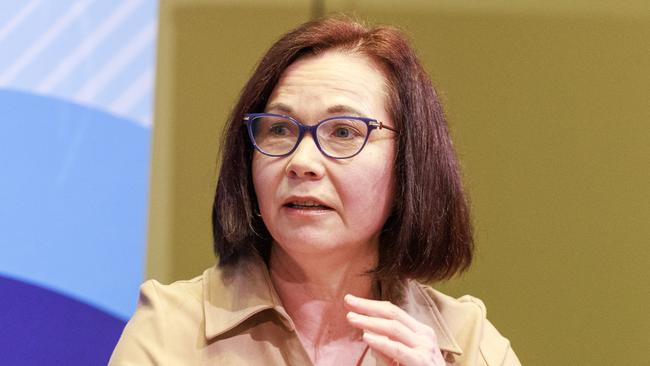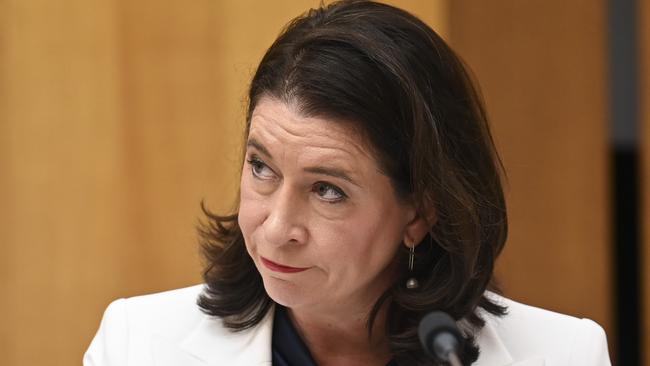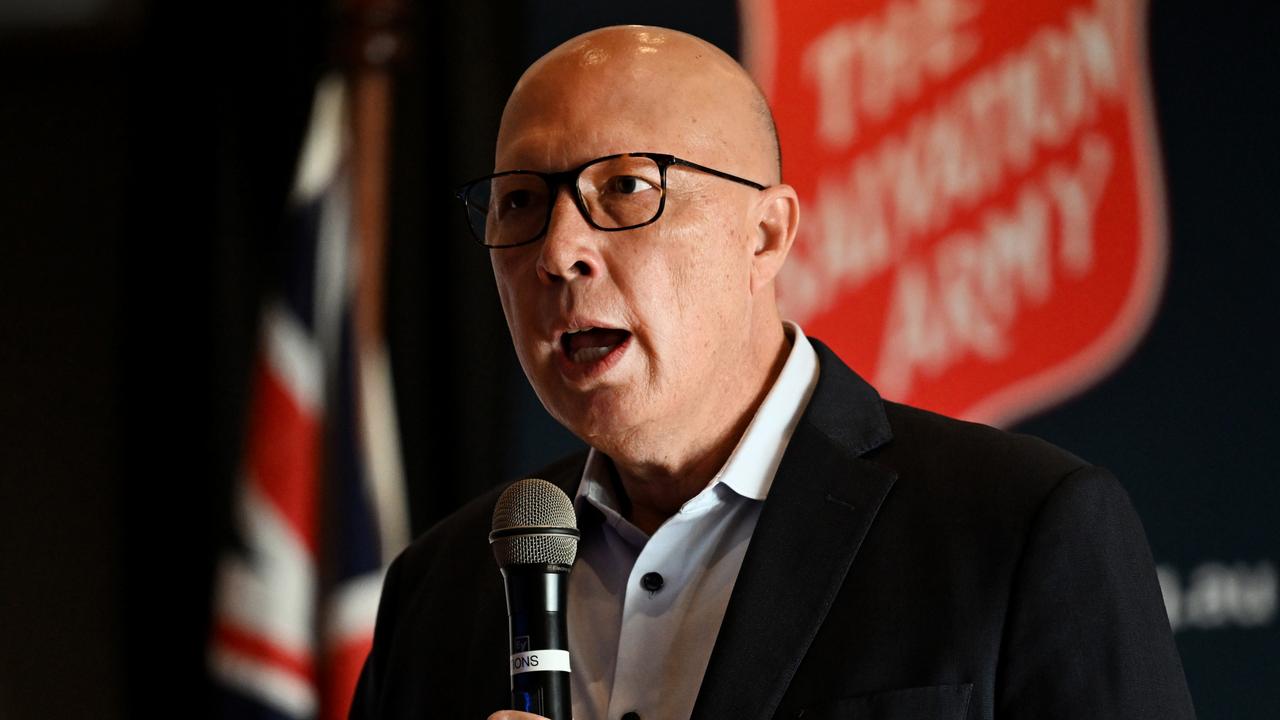ALP holding us back with changes, say miners
New analysis shows 72 projects worth more than $68bn across the nation’s top three exports – coal, iron ore and oil and gas – have failed to advance in the last year, triggering warnings from the mining sector.

New analysis shows 72 projects worth more than $68bn across the nation’s top three exports – coal, iron ore and oil and gas – have failed to advance in the last year, triggering warnings from the mining sector that Labor has “gone out of its way to ensure the policy settings related to resources are anti-competitive”.
The projects dropped, delayed, not progressed or gone backwards between 2022 and 2023 have been identified by the Coalition based on an analysis of the last two years of data compiled by the Department of Industry, Science and Resources.
The opposition blamed the hold-ups on declining investor confidence in the resources sector as a result of new government policy decisions, with the Minerals Council of Australia calling on the government to provide “real support” for the resources sector in 2024.
MCA chief executive Tania Constable said investor confidence had been shaken following key energy market interventions, contentious industrial relations changes, tax shake-ups and environmental policy decisions.
She told The Australian that Labor had “talked a big game before they came into government and have not delivered on any promise related to resources”.
“They continue to take the resources sector and resources states for granted,” Ms Constable said. “They need to look carefully at the policy settings needed to attract investment into Australia. It’s not just about critical minerals.
The traditional resources that Australians have relied upon – iron ore, coal, gas and gold – are all important in providing the much-needed services that every Australian relies upon.”
But Resources Minister Madeleine King rejected claims the sector was under siege and that investors were looking elsewhere, dismissing claims by the Coalition of increasing sovereign risk as “laughable”.
Ms King said iron ore exports and volumes were “quite healthy and the commodity continues to be the mainstay of the economy” while the offshore energy regulator had granted five approvals in December, including for the $16bn Scarborough and $4.7bn Barossa gas projects.
The debate was triggered after the Resources and Energy Major Projects (REMP) annual review – published last month by the office of the chief economist at the Department of Industry, Science and Resources – found there were 125 major projects valued at $50m or more in the pipeline across the coal, oil and gas, and iron ore sectors at the end of October.
The Coalition seized on the findings, warning it represented a fall of nearly 11 per cent when compared with the results for the year to November 2022 when there were 140 projects found to be in the pipeline across the nation’s top three export categories.

Opposition resources spokeswoman Susan McDonald warned that, of the more than 120 projects still in the pipeline at the end of October, a total of 72 – or nearly 60 per cent – were “struggling to get off the ground” based on an analysis of the last two annual REMP reviews.
The list of 72 projects includes those that have been “dropped” between the 2022 and 2023 major project updates; those that have been “delayed” because their estimated start dates have blown out by at least a year; those that have “not progressed” or experienced no change and those that have gone backwards by backsliding from the “committed” to the “feasibility” or even “publicly announced” phase of development.
“Coal, gas and iron ore projects make up the top three exports in Australia, which generated $344bn in export earnings in 2022-23,” Senator McDonald said. “This is over 50 per cent of Australia’s total export earnings. Yet in this latest report, almost 60 per cent of current projects in the pipeline have not progressed or have gone backwards, which is a dire warning to the future of our resources sector.”
The opposition analysis suggests that there are 17,000 ongoing jobs linked to the 72 projects that have failed to advance, with Senator McDonald warning confidence had been undermined by interventions in the gas market, a lack of regulatory clarity in offshore oil and gas, changing tax and royalty regimes and increased green tape.
“Throughout Labor’s term in government, the resources sector has faced a number of attacks thanks to poor policies, which have severely undermined investor confidence and increased Australia’s sovereign risk,” she said.
Ms Constable said there was a need for “major government” support in 2024 for Australia to “remain an attractive investment destination”.
“We are seeing investment going to Canada, going to the United States, going to Asian destinations because they are not seeing the same sort of challenges on policy that we have in Australia,” she said.
“The government has gone out of its way to ensure the policy settings related to resources are anti-competitive.”
In the 2023 REMP, the Resources Department found there were a total of 421 major resource and energy projects in Australia under development as of the end of October 2023 – an increase from 393 projects a year earlier.
This included 86 “committed” projects – where a final investment decision (FID) had been taken – and 46 projects at the “advanced feasibility” stage.
The value of “committed” projects had fallen slightly to $77bn at the end of October 2023 when compared to the year to November 2022, with 12 oil and gas projects making up $36bn or 46.5 per cent of the total. However, this represented a fall of 22 per cent when compared to the $46bn value of “committed” oil and gas projects included in the 2022 REMP.
The 2023 REMP also revealed that only one new oil and gas project had reached a final investment decision in the 12 months to November 2023. Overall, it found the investment outlook for Australia’s resources and energy sector remained “healthy”.
Ms King rejected accusations from the Coalition about increased sovereign risk as “laughable” given the opposition was still unable to say whether it supported proposed changes to the petroleum resource rent tax “which the industry is urging them to support”.
“The claim that Labor is hostile toward the resources sector makes no sense given Scott Morrison’s unprecedented actions to secretly undermine his own resources minister while the Coalition was in power,” Ms King said. “This was the same Liberal Party and National Party that chose to dump the resources portfolio out of the federal cabinet when they were in government.”
The Coalition analysis of the 2022 and 2023 REMP annual reviews shows that 38 major coal projects in the investment pipeline had failed to advance in addition to 21 major gas projects and 13 iron ore projects.





To join the conversation, please log in. Don't have an account? Register
Join the conversation, you are commenting as Logout